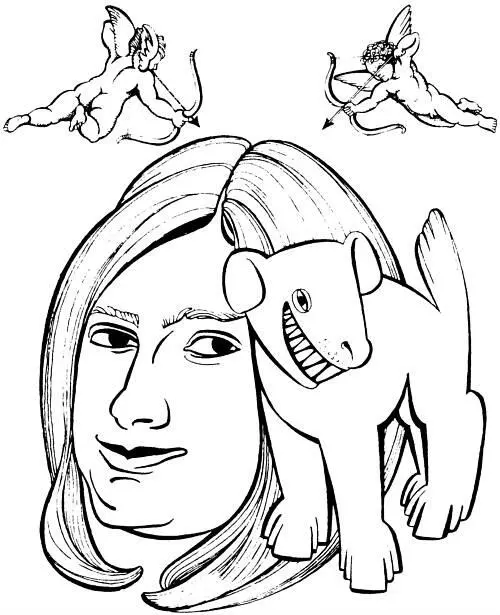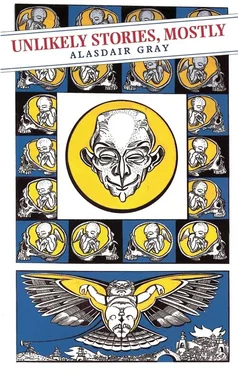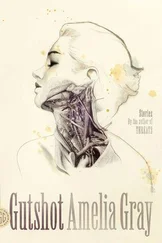“How can he be other than malignant?”
“In Sicily the dog is thought of as a benefactor of frigid or sterile women. If the dog can be induced to sleep with such a woman and she submits to him she will become capable of normal fruitful intercourse with a man. There is always a condition attached to this. The dog must always be, to a certain extent, the husband of the woman. Even if she marries a human man, the dog can claim her whenever he wants.”
“Oh God,” said Gordon.
“There’s nothing horrible about it,” said McIver. “In one of Jose Mompou’s novels the hero encounters a brigand chieftain whose wife is also married to the dog. The dog and the chieftain are friends, the dog accepts the status of pet in the household, sleeping by the fire, licking the plates clean et cetera, even though he is the ghostly husband of several girls in the district. By his patronage of the house in this ostensibly servile capacity, he brings the brigand luck. His presence is not at all resented, even though he sometimes sleeps with the brigand’s daughters. To have been loved by the dog makes a woman more attractive to normal men, you see, and the dog is never jealous. When one of his women marries he only sleeps with her often enough to assert his claim on her.”
“How often is that?”
“Once a year. He sleeps with her on the night before the wedding and on each anniversary of that night. Say, how are you feeling? You look terrible.”
Gordon went into the street too full of horror and doubt to think clearly.
“To be compared with a dog ! To be measured against a dog ! Oh no, God, Nan wouldn’t do that! Nan isn’t so wicked!”
He found he was gibbering these words and running as fast as possible home. He stopped, looked at his watch, forced himself to walk slowly. He arrived home about midnight, went through the close to the back court and looked up at the bedroom window. The light was out. He tiptoed upstairs and paused at the front door. The door looked so much as usual that he felt nothing wrong could be behind it; he could still return to the hotel, but while he considered this his hand was stealthily putting the key in the lock. He went softly into the living room, hesitated outside the bedroom door, then opened it quickly. He heard a gasp and Nan shriek, “Gordon!”
“Yes,” said Gordon.
“Don’t put the light on!”
He switched the light on. Nan sat up in bed blinking at him fearfully, her hands pressed protectively on a mound between her legs under the tumbled bedclothes. Gordon stepped forward, gripped the edge of the bedclothes and tugged. “Let go!” he said. She stared at him, her face white with terror, and whispered, “Go away!” He struck her face and she fell back on the pillows; he snatched away the bedclothes and the white dog sprang from between the sheets and danced on them, grinning. Gordon grabbed at the beast’s throat. With an easy squirming movement it evaded his hand, then bit it. Gordon felt the small needle-teeth sink between his fingerbones and suddenly became icy cold. He sat on the edge of the bed and stared at the numb bitten hand still gripped between the dog’s grinning jaws: its pink little eyes seemed to wink at him. With a great yell, he seized the beast’s hind leg with his free hand, sprang up and swung its whole body against the wall. Nan screamed. He felt its head crush with the impact, swung and battered it twice more on the wall, leaving a jammy red stain each time, then he flung the body into a corner and sat down on the edge of the bed and stared at his bitten hand. The sharp little teeth seemed to have gone in without piercing any veins or arteries, for the only mark on the skin was a V-shaped line of grey punctures. He stared across at the smash-headed carcase. He found it hard to believe he had killed it. Could such a creature be killed? He got to his feet with difficulty, for he felt unwell, and went to the thing. It was certainly dead. He opened the window, picked the dog up by the tail and flung it down into the back court, then went over to the bed where Nan lay, gazing at him with horror. He began to undress as well as he could without the use of the numbed right hand. “So, my dear,” he muttered, “you prefer convention.”
She cried out, “You shouldn’t have come back tonight! We would all have been happy if you hadn’t come back tonight!”
“Just so,” said Gordon, getting in bed with her.
“Don’t touch me!”
“Oh yes, I’ll touch you.”
Toward morning Gordon woke, feeling wonderfully happy. Nan’s arms clasped him, yet he felt more free than ever before. With a little gleeful yelp he sprang from the nest of warmth made by her body and skipped upon the quilt. Nan opened her eyes lazily to him, then sat up and kissed his muzzle. He looked at her with jovial contempt, then jumped on to the floor and trotted out of the house, the shut doors springing open at the touch of his nose. He ran downstairs into the sunlit street, his mouth hanging open in a grin of sheer gaiety. He would never again be bound by dull laws.

THE CRANK THAT MADE THE REVOLUTION
Nowadays Cessnock is a heavily built-upon part of industrial Glasgow, but two hundred and seventy-three years ago you would have seen something very different. You would have seen a swamp with a duck-pond in the middle and a few wretched hovels round the edge. The inmates of these hovels earned a living by knitting caps and mufflers for the inhabitants of Glasgow who, even then, wore almost nothing else. The money got from this back-breaking industry was pitifully inadequate. Old Cessnock was neither beautiful nor healthy. The only folk living there were too old or twisted by rheumatism to move out. Yet this dismal and uninteresting hamlet saw the beginning of that movement which historians call The Industrial Revolution; for here, in seventeen hundred and seven, was born Vague McMenamy, inventor of the crankshaft which made the Revolution possible.
There are no records to suggest that Vague McMenamy had parents. From his earliest days he seems to have lived with his Granny upon a diet of duck-eggs and the proceeds of the old lady’s knitting. A German biographer has suggested that McMenamy’s first name (Vague) was a nickname. The idea, of course, is laughable. No harder-headed, clearer-sighted individual than McMenamy ever existed, as his crankshaft proves. The learned Herr Professor is plainly ignorant of the fact that Vague is the Gaelic for Alexander. Yet it must be confessed that Vague was an introvert. While other boys were chasing the lassies or stoning each other he would stand for long hours on the edge of the duck-pond wondering how to improve his Granny’s ducks.
Now, considered mechanically, a duck is not an efficient machine, for it has been designed to perform three wholly different and contradictory tasks, and consequently it does none of them outstandingly well. It flies, but not as expertly as the swallow, vulture or aeroplane. It swims, but not like a porpoise. It walks about, but not like you or me, for its legs are too short. Imagine a household appliance devised to shampoo carpets, mash potatoes and darn holes in socks whenever it feels like it. A duck is in a similar situation, and this made ducks offensive to McMenamy’s dourly practical mind. He thought that since ducks spend most of their days in water they should be made to do it efficiently. With the aid of a friendly carpenter he made a boat-shaped container into which a duck was inserted. There was a hole at one end through which the head stuck out, allowing the animal to breathe, see and even eat; nonetheless it protested against the confinement by struggling to get out and in doing so its wings and legs drove the cranks which conveyed motion to a paddle-wheel on each side. On its maiden voyage the duck zig-zagged around the pond at a speed of thirty knots, which was three times faster than the maximum speed which the boats and ducks of the day had yet attained. McMenamy had converted a havering all-rounder into an efficient specialist. He was not yet thirteen years of age.
Читать дальше













